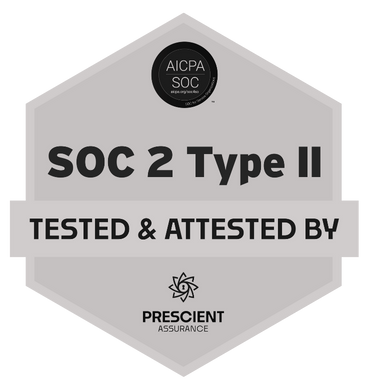No one likes to think about death, but it's a topic that we'll all have to face at some point. And as morbid as it may seem, it's essential to plan for the future to protect your assets and loved ones. That's where having a will comes in. A will is a legal document that outlines how you want your assets distributed after you die. Unfortunately, over 70% of Americans don't have a will or underestimate its importance. In this blog post, we'll explain why having a will is crucial and what happens if you don't have one.
One of the main reasons to have a will is to ensure that your assets are distributed according to your wishes after your death. Without a will, the probate court will decide how your assets will be distributed. This can be a lengthy and expensive process, and your assets may not be distributed as you would have hoped. With a will, you can name beneficiaries and specify how you would like your assets divided. You can also appoint a trusted executor to oversee the distribution of your assets.
Another crucial reason to have a will is to protect your loved ones. In your will, you can name a guardian for your minor children and specify how they should be cared for. You can also name a trusted person to act as a power of attorney to make decisions on your behalf if you become incapacitated. This can include decisions about your medical care and financial affairs.
When a loved one dies, it can be an emotional and stressful time for everyone involved. Without a will, family members may dispute how your assets should be distributed, leading to lengthy and costly legal battles. A will can help avoid these disputes by clearly outlining your wishes and leaving no room for interpretation.
If you own a business, having a will is especially important. In your will, you can name a successor to take over the business after you die. This can help ensure that your business continues to operate smoothly and that your employees are taken care of.
Perhaps the most important reason to have a will is the peace of mind it brings. Knowing that your assets and loved ones are taken care of according to your wishes can provide a sense of comfort and security. It can also alleviate some of the stress and burden on your loved ones during an already challenging time.
In conclusion, having a will is crucial for protecting your assets, loved ones, and business continuity. It can also help avoid family disputes and provide you with peace of mind. If you don't have a will, start the process as soon as possible. Don't wait until it's too late. Plan for the future and protect the people and things that matter most to you.
No one likes to think about death, but it's a topic that we'll all have to face at some point. And as morbid as it may seem, it's essential to plan for the future to protect your assets and loved ones. That's where having a will comes in. A will is a legal document that outlines how you want your assets distributed after you die. Unfortunately, over 70% of Americans don't have a will or underestimate its importance. In this blog post, we'll explain why having a will is crucial and what happens if you don't have one.
One of the main reasons to have a will is to ensure that your assets are distributed according to your wishes after your death. Without a will, the probate court will decide how your assets will be distributed. This can be a lengthy and expensive process, and your assets may not be distributed as you would have hoped. With a will, you can name beneficiaries and specify how you would like your assets divided. You can also appoint a trusted executor to oversee the distribution of your assets.
Another crucial reason to have a will is to protect your loved ones. In your will, you can name a guardian for your minor children and specify how they should be cared for. You can also name a trusted person to act as a power of attorney to make decisions on your behalf if you become incapacitated. This can include decisions about your medical care and financial affairs.
When a loved one dies, it can be an emotional and stressful time for everyone involved. Without a will, family members may dispute how your assets should be distributed, leading to lengthy and costly legal battles. A will can help avoid these disputes by clearly outlining your wishes and leaving no room for interpretation.
If you own a business, having a will is especially important. In your will, you can name a successor to take over the business after you die. This can help ensure that your business continues to operate smoothly and that your employees are taken care of.
Perhaps the most important reason to have a will is the peace of mind it brings. Knowing that your assets and loved ones are taken care of according to your wishes can provide a sense of comfort and security. It can also alleviate some of the stress and burden on your loved ones during an already challenging time.
In conclusion, having a will is crucial for protecting your assets, loved ones, and business continuity. It can also help avoid family disputes and provide you with peace of mind. If you don't have a will, start the process as soon as possible. Don't wait until it's too late. Plan for the future and protect the people and things that matter most to you.



